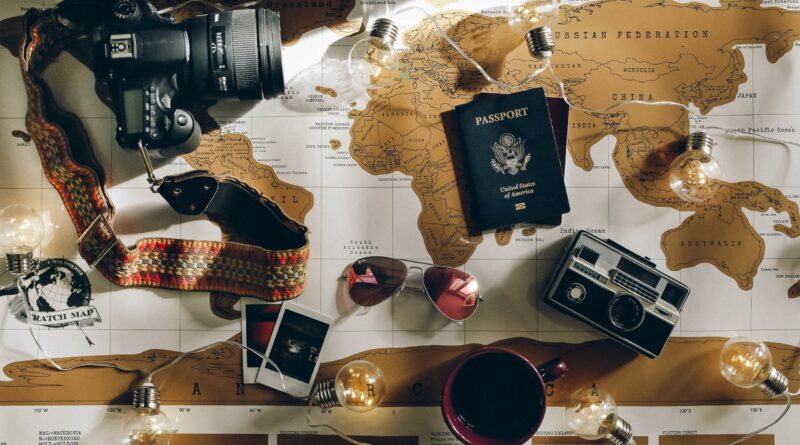What Are the Best Travel Hacks for First-Time Travelers?
Introduction
Traveling for the first time can be exciting yet overwhelming. Whether you’re venturing abroad for a vacation, business trip, or adventure, the idea of navigating unfamiliar places, dealing with logistics, and making the most of your time can seem daunting. Fortunately, there are numerous travel hacks that can help first-time travelers make the most of their trip, save money, and reduce stress along the way.
In this article, we’ll explore the best travel hacks for first-time travelers, offering practical tips to help you travel smarter, stay organized, and enjoy your experience to the fullest.
1. Start Planning Early
The earlier you begin planning, the better your chances of securing deals on flights, accommodations, and activities. Procrastination can lead to higher costs and fewer options, so take time to research and book in advance.
- How it helps: Early planning allows you to compare prices, secure discounted flights, and pick accommodations that fit your budget and preferences.
- Benefit: You’ll have more time to sort out travel details, avoid last-minute stress, and ensure you get the best deals.
Tip: Use fare comparison websites and set up price alerts to track fluctuations in airfares, and plan your accommodations and activities ahead of time to lock in better prices.
2. Pack Light and Smart
One of the most common mistakes for first-time travelers is overpacking. Not only does packing too much add unnecessary weight to your luggage, but it also makes it harder to move around and can incur extra baggage fees.
- How it helps: Packing light reduces stress and gives you more flexibility during your trip. You’ll avoid extra luggage fees and have an easier time navigating airports, trains, or buses.
- Benefit: By packing only the essentials and using smart packing techniques, like rolling clothes or using packing cubes, you’ll have more space and less weight to worry about.
Tip: Stick to versatile, wrinkle-resistant clothing that can be mixed and matched. Make sure you’re packing the right shoes for different activities, and avoid overstuffing your bag with unnecessary items.
3. Keep Digital and Physical Copies of Important Documents
Whether you’re traveling internationally or domestically, keeping backups of important documents is a must. Losing your passport, ID, or travel tickets can cause serious headaches.
- How it helps: Having physical and digital copies of essential documents (e.g., passport, ID, flight tickets, hotel bookings) ensures that you can quickly access important information in case of loss or theft.
- Benefit: This simple precaution can help you avoid unnecessary delays and complications during your travels.
Tip: Store digital copies in a cloud-based service or email them to yourself, and keep physical copies separate from the originals.
4. Download Helpful Travel Apps
There’s an app for almost everything when it comes to travel. From flight trackers to currency converters, downloading a few key apps can make your journey smoother and more convenient.
- How it helps: Travel apps help you stay organized and informed throughout your trip. You can use apps for navigation, flight tracking, language translation, local transportation, restaurant recommendations, and much more.
- Benefit: You’ll be able to manage your travel plans more efficiently, find local hotspots, and navigate unfamiliar destinations with ease.
Tip: Download apps like Google Maps, Duolingo (for language), TripIt (for itinerary management), and XE Currency for currency conversions.
5. Learn Basic Phrases in the Local Language
If you’re traveling to a foreign country, learning a few basic phrases in the local language can go a long way in enhancing your travel experience and helping you navigate more easily.
- How it helps: Learning simple greetings, phrases like “thank you” and “please,” or essential travel questions can improve your interactions with locals and make you feel more confident.
- Benefit: Even small efforts to communicate in the local language show respect for the culture and can make it easier to get around and seek assistance if needed.
Tip: Focus on learning key phrases that are relevant to your trip, such as “Where is the bathroom?” “How much does this cost?” and “Do you speak English?”
6. Avoid Roaming Fees with Local SIM Cards or Wi-Fi
One of the biggest surprises for first-time travelers can be the high cost of international roaming charges on their phone. Fortunately, there are ways to stay connected without breaking the bank.
- How it helps: Purchasing a local SIM card or using free Wi-Fi in cafes, hotels, or airports can save you from exorbitant roaming fees and provide better data speeds.
- Benefit: You’ll have access to maps, communication apps, and social media without worrying about running up a large phone bill.
Tip: Before traveling, research local SIM card providers or international phone plans with affordable rates for data and calls, or make sure to use Wi-Fi whenever possible.
7. Use Public Transportation
Public transportation is one of the most budget-friendly ways to get around, and it can provide you with a more authentic experience of your destination.
- How it helps: It’s often much cheaper than taxis or rideshares, and you get to experience the city like a local.
- Benefit: Taking public transportation can help you save money and time, especially if your destination has an extensive and efficient network.
Tip: Research transportation options before you travel, and consider buying a pass for unlimited travel over a set period if available. This can often save you money and allow you to travel freely.
8. Pack Snacks and Reusable Water Bottles
Traveling can make you hungry, and buying snacks or drinks at airports or tourist spots can quickly add up. Instead, pack your own snacks and a reusable water bottle to stay fueled and hydrated without spending extra.
- How it helps: Carrying snacks and water allows you to avoid overpriced airport food and stay energized during long travel days.
- Benefit: Not only does this save you money, but it also gives you the flexibility to eat and drink when needed, especially during long layovers or transit times.
Tip: Pack non-perishable snacks like nuts, granola bars, or dried fruit. Make sure to empty your water bottle before passing through airport security, but refill it once you’re past security.
9. Double-Check Your Flight Details and Arrive Early
Arriving at the airport early is a good habit to develop, especially for first-time travelers. You’ll have time to check in, go through security, and avoid the stress of rushing.
- How it helps: Many first-time travelers don’t realize how time-consuming the check-in, security, and boarding process can be. Arriving early ensures you have time to navigate these steps calmly.
- Benefit: It minimizes the risk of missing your flight and gives you time to deal with unexpected situations.
Tip: Arrive at least 2 hours before domestic flights and 3 hours for international flights. Double-check your flight details to ensure no changes to your departure time or gate.
10. Protect Yourself with Travel Insurance
Travel insurance may seem like an unnecessary expense, but it can provide peace of mind and protection in case of unforeseen events such as trip cancellations, medical emergencies, or lost luggage.
- How it helps: Travel insurance covers a variety of potential issues, from lost baggage to emergency medical situations, making it a safety net during your travels.
- Benefit: You’ll feel more secure knowing that you have financial protection in case something goes wrong.
Tip: Look for comprehensive travel insurance that covers medical emergencies, flight cancellations, and lost luggage. Check your current insurance provider to see if they offer any coverage for travel abroad.
11. Stay Safe and Keep Valuables Secure
Safety should always be a priority when traveling. Avoid carrying too much cash, and be mindful of pickpockets, especially in busy tourist areas or on public transportation.
- How it helps: Keeping valuables secure, like your passport, credit cards, and phone, minimizes the risk of theft or loss.
- Benefit: By staying aware of your surroundings and using secure methods to carry your valuables, you can focus on enjoying your trip without constant worry.
Tip: Use a neck wallet or money belt for your passport and other important documents. Keep your wallet and phone in a front pocket or secure location when out in public.
12. Embrace the Unexpected
Travel doesn’t always go as planned, especially for first-time travelers. Whether it’s a missed flight, an unexpected detour, or a change in weather, it’s important to stay flexible and adaptable.
- How it helps: Embracing the unexpected allows you to be more relaxed and open to new experiences that might come your way, even if they weren’t part of your original plan.
- Benefit: By staying calm and positive, you’ll make the most of your travels and create lasting memories from spontaneous moments.
Tip: Keep a positive attitude and approach any unexpected situations as part of the adventure. Sometimes, these unplanned moments become the most memorable parts of your trip.
Conclusion
As a first-time traveler, the key to a successful trip is preparation, flexibility, and making smart choices along the way. By using these travel hacks, you can reduce stress, save money, and make your travel experience more enjoyable and efficient. With these tips in mind, you’ll be ready to explore the world with confidence and make the most of your adventures.

